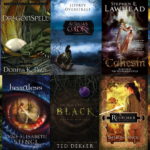C. S. Lewis and Sub-creation
In memory of C. S. Lewis and the upcoming 55th anniversary of his death on November 22, 1963, I am re-posting this article (and others) featuring an aspect of his writing.
Much misinformation abounds in regard to C. S. Lewis and his intentional inclusion of Christian allusions and themes in his fiction, particularly in The Chronicles of Narnia. For example, in an otherwise excellent article published at Breakpoint [and no longer available], Richard Doster wrote in “A Lost Art,” the following:
When Lewis wrote The Chronicles of Narnia, he had no theological agenda. There was no ulterior, evangelistic motive; he simply hoped to create likable stories. But the man’s worldview was as elemental to him as blood and bone. And his characters, plots, symbols, and themes are—unavoidably—products of it.
 Actually this statement misrepresents Lewis’s position. Certainly, he stated clearly he was not intending to write an allegory when he penned The Lion, the Witch, and the Wardrobe. And Lewis thoroughly understood allegory. After all, his first work of fiction was Pilgrim’s Regress, an imitation in style of John Bunyan’s definitive allegory, Pilgrim’s Progress.
Actually this statement misrepresents Lewis’s position. Certainly, he stated clearly he was not intending to write an allegory when he penned The Lion, the Witch, and the Wardrobe. And Lewis thoroughly understood allegory. After all, his first work of fiction was Pilgrim’s Regress, an imitation in style of John Bunyan’s definitive allegory, Pilgrim’s Progress.
But between allegory and no intentional evangelistic motive lies considerable territory, and I believe Lewis made it clear, along with J. R. R. Tolkien, that he was aiming for neither extreme. From a Wikipedia article on mythopoeia:
Lewis’s mythopoeic intent is often confused with allegory, where the characters and world of Narnia would stand in direct equivalence with concepts and events from Christian theology and history, but Lewis repeatedly emphasized that an allegorical reading misses the point (the mythopoeia) of the Narnia stories.
The key here is that Lewis did write with intention, just not allegorical intention. Too many voices today in writing circles assume that his statements to debunk the idea that The Chronicles of Narnia were allegorical consequently mean he had no “ulterior evangelistic motive” or “theological agenda.” And therefore, no intentional purpose at all except to write “likable stories.”
Actually he intended to write a great deal more. He and Tolkien both claimed that fantasy could reveal Truth in a way that reality fiction could not.
So what was his intention?
According to Bill Smith, Director of the C. S. Lewis Institute, Lewis utilized what he termed “supposal.” From the C. S. Lewis article in Wikipedia:
His most famous works, the Chronicles of Narnia, contain many strong Christian messages and are often considered allegory. Lewis, an expert on the subject of allegory, maintained that the books were not allegory, and preferred to call the Christian aspects of them “suppositional”. As Lewis wrote in a letter to a Mrs. Hook in December 1958:
If Aslan represented the immaterial Deity in the same way in which Giant Despair [a character in The Pilgrim’s Progress] represents despair, he would be an allegorical figure. In reality however he is an invention giving an imaginary answer to the question, ‘What might Christ become like, if there really were a world like Narnia and He chose to be incarnate and die and rise again in that world as He actually has done in ours?’ This is not allegory at all. (Martindale & Root 1990)
The idea, then, was not to disguise Christianity, as some suggest. But neither did Lewis include Christian messages and allusions unintentionally on the way to writing an entertaining story. Rather, he simply asked, “Suppose …” Suppose God would come in incarnate form to this world, what would that look like, what would that mean?
My questions. Where are the stories today, written using supposal? And since the Chronicles of Narnia remain so popular sixty plus years after they first came out, shouldn’t we in the publishing industry want to find many more stories written with supposal intent? Because apparently, readers still want to read them.









































Fantastic thoughts here! And yes! Where are the supposal stories? I do think they’re being written. Whether they find an audience or not is another discussion altogether.
Shannon, finding the audience is definitely a significant element in the process. Which books do you have in mind?
Becky
I have a somewhat hard time answering this because I haven’t really looked into the supposal thing very much. I don’t really think a lot of people are writing straight up allegory, though. In fact, I think a lot of people try to make stories that vaguely feel like Narnia since that’s what they know and love. So from that standpoint, a lot of people are writing supposals. But maybe in some cases people might stay so much in the Narnia paradigm that their story doesn’t stand out on its own as much as it could.
I don’t think I really write allegory much, or at least not in the sense of making the entire story an allegory. What tends to happen is that I come up with a world/character/what if scenario/etc. and try to figure out how it would realistically function. God, Christianity, etc. are usually one of the elements involved, whether or not those things actually appear in the story(the universe a story takes place in might have God, but sometimes characters won’t encounter him). From the standpoint of using what if scenarios like Lewis did, I guess my stories are supposals?
At the same time, though, some of my characters and stuff do exist to represent and discuss things. One of my stories uses a Faust-like premise, and the main female character in that has a fully fleshed out personality and character arc, so she feels like an actual person. At the same time, she somewhat does represent humans and their relationship with God. But I don’t think she’s actually going to be an allegory to those things, mainly instead just following a lot of the patterns of behavior that humans have in their relationship with God, and thus she can be useful for opening up conversations about those matters?
I don’t know. You can tell me if all that sounds like an allegory, supposal or a mix. But I think maybe a lot of modern Christian fiction stories might be a mix. The Dragons In Our Midst series seems like one, at any rate.
Autumn, I think mix is a good way to describe it. I don’t recall, for example, Christianity existing in Narnia. Rather, Lewis supposed Christ to come to a world with talking animals as the King of the animals, a Lion.
I don’t think Davis does any supposal in his Dragons in Our Midst. He simply invented the equivalent of hell (Circle of Seven, for example), and took characters through experiences in which they had to defeat evil.
I think allegory might actually becoming more popular again. A client of mine has written a four book series of allegory, right from the mold of Bunyan’s Pilgrim’s Progress. His name is Walter Cantrell, and the first book is Disciple’s Quest. Here’s the link if you’re interested. https://www.amazon.com/Disciples-Quest-Adventure-Walter-Cantrell-ebook/dp/B017MBVZEE/
Then not so long ago in a Facebook group, I saw a couple others who have written allegories, too. I’m glad that this genre is coming out of the mothballs.
Becky
Your post makes me think of a letter featured in a kids biography of Lewis where he states what each book is about and how it is a supposition if another word fell like ours how Christ would go and save it. I copied it here:
The Magician’s Nephew tells the Creation and how evil entered Narnia
The Lion, the Witch and the Wardrobe tells the Crucifixion and Resurrection
Prince Caspian tells the Restoration of the true religion after a corruption
The Horse and His Boy tells the calling and conversion of a heathen
The Voyage of the Dawn Treader tells of spiritual life (especially in Reepicheep)
The Silver Chair tells of the continued war against the powers of darkness
The Last Battle tells of the coming of the Anti-Christ (The Ape) the end of the world and the last judgement.
Love that, Rachel. Thanks.
Becky